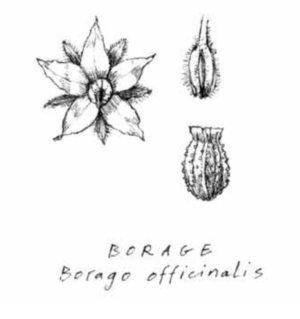The Taste of Herbalism: What Your Tongue is Telling You
Bitter
ENERGETICS: CALMING, COOLING, CLEARING
Bitter flavor has a downward, drying, and clearing action. Bitter cools and clears heat from the body and aids in cases of inflammation. The bitter principle stimulates bile and helps with digestion as well as elimination. In Chinese medicine, this flavor is said to go to the heart. In Out of the Earth, British phytotherapist and author Simon Mills wrote, “Repeatedly in the records of traditional plant medicine, we find that bitter remedies are the ‘true stimulants’, a notion surviving in the modern idiom that ‘nasty- tasting medicines are the best for you’.”3 The bitter receptors on the tongue stimulate a reflex response that provokes an amazing array of actions: increased appetite, increased bile flow, production of hydrochloric acid and digestive enzymes, protected gut tissues, balanced blood sugar, clearing of dampness from the digestive tract, and a low-level antimicrobial action. Bitter herbs include dandelion (Taraxacum officinale), blue vervain (Verbena hastata), and motherwort.
Sour
ENERGETICS: COOLING, ASTRINGING
The direction of sour moves energy inward and downward. Think cooling, natural lemonade in expansive summer heat. The sour flavor of herbs, though, is more subtle than the intensity of lemons. This flavor is represented by herbal fruits such as bilberry (Vaccinium myrtillus), sumac (Rhus spp.), and schisandra (Schisandra chinensis). Their energies astringe tissues or bind excesses. Sour antioxidants (flavonoids) cool the tissues and are actually protective against oxidative stress (heat). Sour foods include vinegar and limes, as well as most fermented foods.
Astringent
ENERGETICS: COOLING, DRYING
Astringent is recognized as a taste in Ayurveda, but in other systems it is considered more as a sensation rather than a flavor. Either way, the mouth definitely recognizes the presence of an astringent food or herb. Astrin- gent herbs are drying to the body and tonifying to the skin and mucous membranes. Most herbs are slightly astringing due to the presence of tannins. These compounds are prevalent in plants because they are part of the plant’s immune response to disease. These compounds precipitate protein and tone inflamed or boggy tissue. Astringent herbs are offered to people who have diarrhea or excessive bleeding and who tend toward dampness, excessive sweating, and secretion. Herbs include witch hazel leaf (Hamamelis virginiana), black tea leaves (Camellia sinensis), and blackberry root (Rubus fruticosus).

